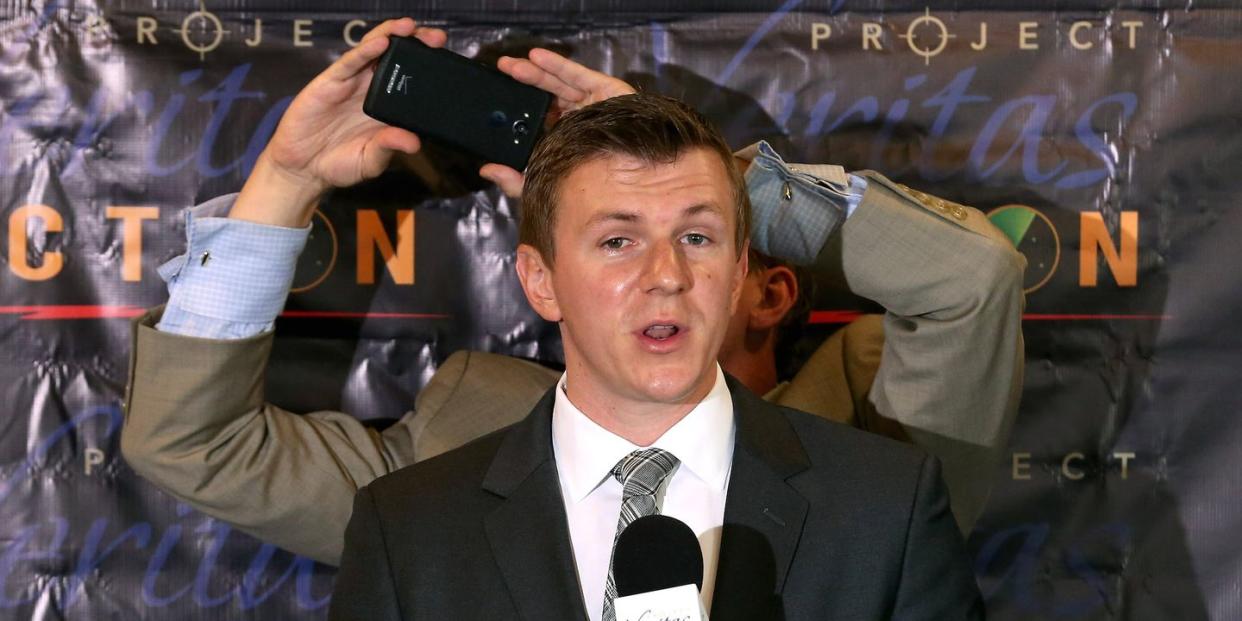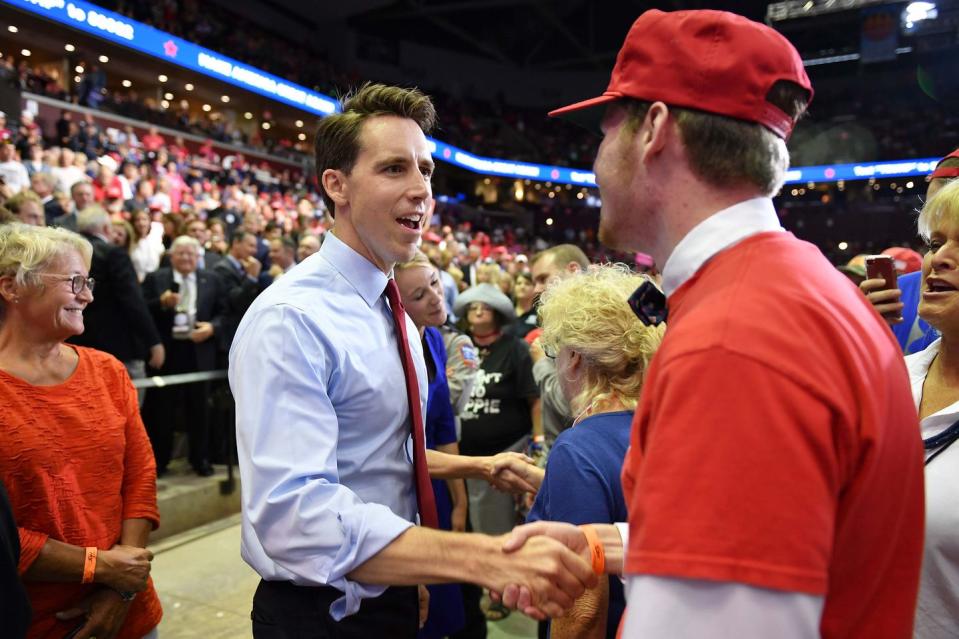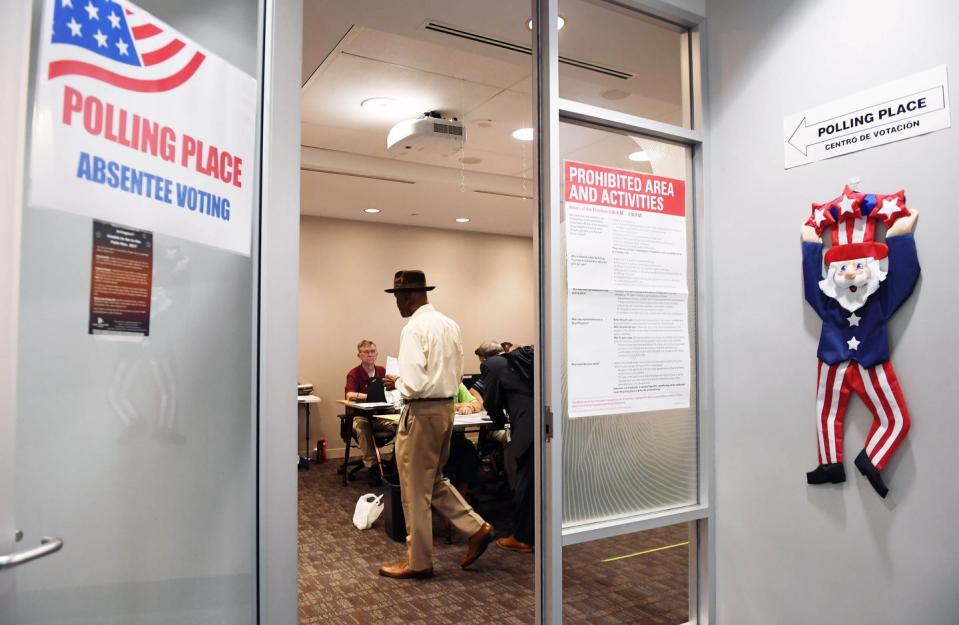The Ratf*ckers Are Hard at Work All Over This Fair Nation

In 1965, the States could be divided into two groups: those with a recent history of voting tests and low voter registration and turnout, and those without those characteristics. Congress based its coverage formula on that distinction. Today the Nation is no longer divided along those lines, yet the Voting Rights Act continues to treat it as if it were.
-Chief Justice John Roberts, declaring the Day of Jubilee in Shelby County v. Holder, June 24, 2013.
Today's episode of the hit show of our new fall season, Election 2018: What Is This Shit, Anyway? begins in Missouri, where Democratic incumbent Claire McCaskill is in trouble because, every six years, Democratic incumbent Claire McCaskill always is in trouble. This time around, however, she's not running against rape-explainer Todd Akin, but against the state's Republican Attorney General Josh Hawley. It seems that her campaign was clipped this week by agents of king ratfcker James O'Keefe and his Project Veritas. From The Kansas City Star:
In one video, a McCaskill staffer says that the senator downplays her support for gun control. Another staffer suggests she is downplaying her support from former President Barack Obama. In another video, McCaskill is accused of trying to hide her support from Planned Parenthood. McCaskill’s campaign has dismissed the videos, saying the senator has never tried to hide her positions on the issues from voters and the video contained nothing she hasn’t said publicly before.
So, an organization the founder of which was convicted of entering a federal building under false pretenses is now saying that a candidate might be downplaying certain elements of her positions to get elected? Ratfcker, fck thyself.

However, on Thursday, as the Star reports, the McCaskill campaign bumped up the pot considerably.
An employee of Project Veritas approached McCaskill’s campaign in May and expressed an interest in volunteering and interning on the campaign, according to an affidavit from McCaskill’s Columbia field director Luke Tonant. As an intern, the Project Veritas employee, who Tonant knew as “Adam Thomson,” had access to the campaign’s voter information database for a total of 20 hours between May and July, according to the affidavit.
The affidavit is part of a 115-page complaint McCaskill’s attorney filed with Hawley’s office Thursday in an effort to pressure the Republican attorney general and McCaskill’s opponent to appoint a special prosecutor to investigate whether Project Veritas violated Missouri law in the course of obtaining the videos.
If the allegations in the affidavit are true, and some of the data was purloined, and the purloined data ended up in the Hawley campaign, then I would suspect we're looking at a pretty hefty computer fraud and computer theft prosecution that would be undertaken by the Missouri attorney general's office. Unfortunately, Missouri's attorney general is...Josh Hawley.

Meanwhile, down in North Carolina, a court has declared the state's entire election board to be unconstitutional. From The Charlotte News & Observer.
However, the judges recognized the timing and ruled that the N.C. Board of Elections and Ethics Enforcement can continue operating as-is, until after the elections are over and the votes are counted. The laws struck down as unconstitutional were put in place by the Republican-led General Assembly in 2017 and 2018 and limited the authority of Democratic Gov. Roy Cooper. The laws were passed to replace previous legislation passed in December 2016, a month after Cooper won the election, that was also struck down as unconstitutional. Prior to the legislative changes that have now been struck down, the governor’s political party was given a majority on the board.
In a deft variation on the traditional legal definition of "chutzpah," GOP members of the state legislature, the guys who put together the maps that a federal court said targeted minority voters "with almost surgical precision," are pushing an amendment to the state constitution that, if it wins at the polls, would make permanent the changes in the election board that the judges just threw out, and they're making a good-government argument on its behalf.
“The public deserves a bipartisan elections board that implements elections laws and investigates campaign finance violations without favoritism towards any party or political agenda,” said Rep. David Lewis of Harnett County and Sen. Warren Daniel of Burke County. “The people can weigh in starting today by voting on the proposed amendment to make a bipartisan Board of Elections and Ethics Enforcement a part of our state constitution.” That proposed amendment to the state constitution was written by Republican legislators after previous court rulings that found their elections board changes to be unconstitutional. It’s one of six amendments on the ballot this November, and if a majority of voters vote for it, it will become law.
If, like me, you're wonky enough to look for state ballot questions to root against, the sheer brass ballsiness of this one makes it a fine choice.

And, as you know, the state of Georgia is as important to our new fall hit series as the Korean Peninsula was to M*A*S*H. Mark Joseph Stern in Slate brings us the latest plot twist.
Then, days or weeks after the election, you receive a notice in the mail. The signature on your absentee ballot, it explains, looked different from the signature on your voter-registration card. So an election official threw out your ballot. There is nothing you can do. Your vote has been voided...
Signature-mismatch laws are a scourge of American elections. The very premise makes no sense: In a similar lawsuit filed in New Hampshire, a forensic document examiner testified that effective signature comparison requires 10 signature samples “at a minimum” to account for variability. Even then, experts may struggle to verify a signature, because our signatures often change over time. Voters who are disabled or elderly, or are nonnative English speakers, are especially likely to have variation between signatures. That’s one reason why New Hampshire’s mismatch law disproportionately impacted seniors, California’s disproportionately impacts first-generation Asian Americans, and Florida’s disproportionately impacts Hispanics.
Handwriting analysis? What's next? Ouija boards? Magic 8-Balls? Signs point to yes.
My lord, they're working hard. After all, those rats won't fck themselves.
[editoriallinks id='2d19c7f3-02fa-48a4-a2de-23f09d393c35'][/editoriallinks]
Respond to this post on the Esquire Politics Facebook page here.
('You Might Also Like',)

